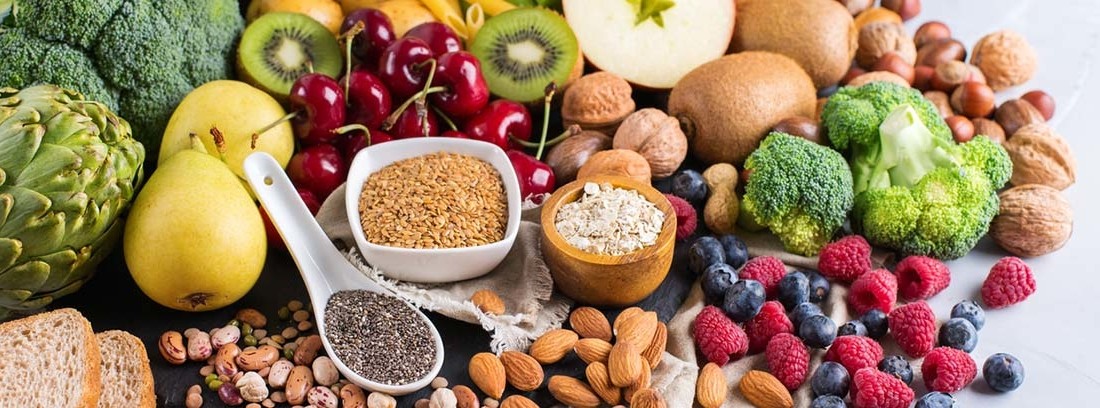Is the vegetarian diet more or less healthy?

In recent years the number of vegetarian people, which according to the Royal Academy of Language (RAE) are those that follow a "diet based mainly on the consumption of plant products, but which admits the use of live animal products, such as eggs, milk, etc". That is why food companies have launched into the race to innovate and create new products that meet the requirements of vegetarian consumers. Now, many times they do not meet the condition of be healthy food.
A vegetarian diet can be just as healthy as an omnivorous diet, as long as certain guidelines are followed and depending on our eating habits. So we can say that any type of diet will be healthy depending on how it is applied.
How to follow a vegetarian and healthy diet
Eating a healthy vegetarian diet is perfectly compatible. It is about making a diet varied and rich in fresh products and poor in processed foods, just like people who follow an omnivorous diet. We just owe choose food well that we consume and take into account some premises:
Vitamin B12 is essential
Vitamin B12 is exclusive to the animal kingdomTherefore, when we eliminate or reduce the consumption of products of animal origin, we expose ourselves to having low levels of. Therefore, it is necessary to resort to supplements. The correct way to supplement is going to be through cyanocobalamin, which is sold in pharmacies. We should not trust supplements made from algae (such as spirulina) as they contain analogs of this vitamin, that is, with a similar chemical form, they do not have the same function. In addition, in this case they can mask a possible analytical level deficit.
Omega 3
Omega 3 is part of the essential fatty acids characteristic of blue Fish, but not exclusive to this one. If we eat a vegetarian diet in which we do not consume any fish, we must replace this animal product with other vegetables so as not to have a deficit of fatty acids. The vegetable sources of omega 3 are fundamentally the walnuts and flax. In the case of flax, we will have to take it in the form of oil or crushed because the seed covers are very resistant to digestion and would not allow the absorption of its nutrients, that is, we will not absorb the omega 3 correctly.
Iron
Another common concern when following a vegetarian diet is reaching a sufficient intake of iron. In this sense, it is important to consume as nuts, seeds, and green leafy vegetables. It should be noted that plant products have less iron than products of animal origin, therefore, vegetarians tend to have less iron deposits. However, this does not have to cause iron deficiency anemia, it simply has to be done appropriately.
Protein
Although a priori it may seem that eating a vegetarian diet means eliminating protein foods, there are plant foods rich in proteins, such as legumes, nuts, and pseudo-cereals like quinoa. So if, to the detriment of meat, fish, eggs and dairy, we choose these products, we will not have difficulties to cover our protein needs. Now, if we eliminate foods of animal origin without compensating for their disappearance in our diet, we can incur a protein deficit. Another problem would be that instead of meat we choose to take poor quality processed vegan products or that do not contain the necessary levels of protein, for example, a tofu burger should contain 80% legumes to offer the body the necessary protein intake.
In short, a person who decides to start following a vegetarian diet should not simply continue eating as they usually did, eliminating meat and / or fish from their diet. The tip is that we must supplement these foods with a greater consumption of legumes and nuts that will provide us with vegetable proteins. And, like omnivorous people, properly regulate our diet to avoid problems of overweight, obesity, cardiovascular ailments or certain types of cancer. No one, regardless of diet, is exempt from these risks.
Click here if you want to know more about it.
Bachelor of Food Science and Technology Diploma in Human Nutrition and Dietetics
(Updated at Apr 14 / 2024)